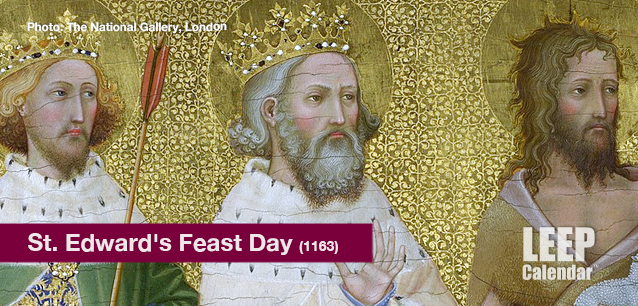 AD
AD
Today is: December 26
Scroll to explore events active on this date.
LEEP INK FEATURES

August? Absolutely!
In August, we live through the Dog Days of Summer. It's hot and often humid, and those who can leave for better climates do. Down south, winter is in full force. August is also known as "the ...

In The Heat of July: July 2025 Events
Is it hot enough (or cold enough if you're below the equator) for you yet? There is actually a day for that! Like every month, I pick a diverse collection of events you may or may not know about. This ...

May Blooms: Events in May 2025
Along with October, May is one of the most densely packed months of the year. It's before the summer humidity and the last whole month of the school year. The weather is warming in t...
About Saint Edward's Feast Day
United Kingdom & Ireland , Food
Ends: Oct 13, 2025
DESCRIPTION:
Saint Edward the Confessor was born to King Ethelred II in Islip, England, in 1003 AD. Though he died in 1066, his remains were transferred to his final resting place on October 13, 1163. This day has been his feast day ever since.
WHY SO MANY FEAST DAYS?
Have you ever noticed that there seem to be feast days for just about everything in the Catholic and Orthodox Christian faiths? There is a reason for that. The church granted feast days to allow all subjects of the Crown to take a day off. As most worked six days a week, feast days provided a break that landowners and nobility couldn't deny. If they tried, they were going against the church, and that you did not do.
In medieval times, there were approximately 60 feast days a year. Add this to 52 Sundays, Christmas, and Easter, and workers received a minimum of 114 days off a year. Contrast that to today. The average American gets 104 weekend days and seven national holidays off work. That's three days less than the commoners of the Dark Ages, just in case you're feeling a little overworked.
VIDEOS
Currently, this event does not have supporting videos.
SUPPORTING DOCUMENTS
Currently, this event does not have supporting documents.
ADDITIONAL IMAGES
Currently, this event does not have supporting images.
Where would you like to go now?
 AD
AD


/footer-logo.svg)
